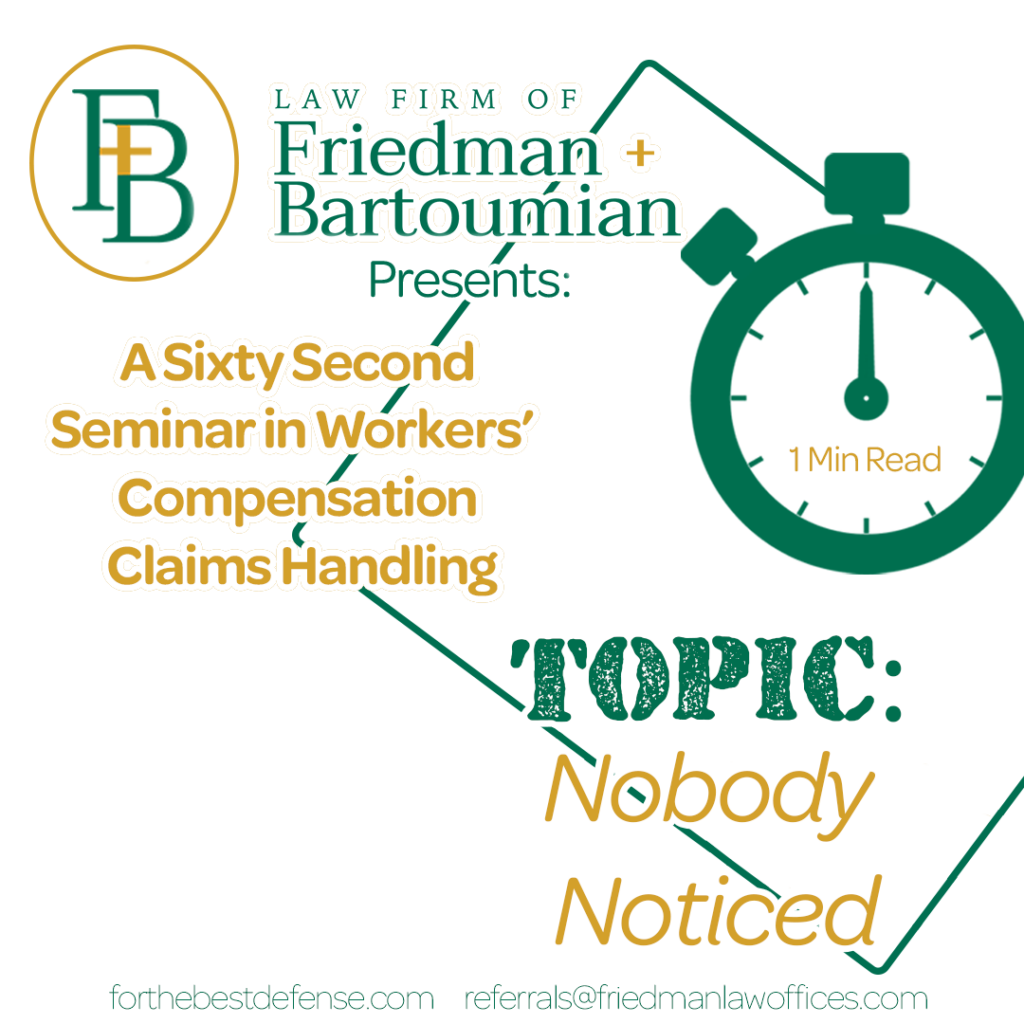
Three days before Christmas, a funny thing happened in the workers’ compensation world. A long-standing provision of the Labor Code was declared unconstitutional. Specifically, on 12/22/23, the California Court of Appeals declared LC §139.32(b) unconstitutional on the grounds of vagueness. What’s funny about that? Nobody in the workers’ compensation community seems to have noticed!
LC §139.32(b) required interested parties to “disclose any financial interest in any entity providing services.” For example: If an applicant attorney owns an interpreting company, then ownership must be disclosed if the attorney hires that company to perform interpreting services on behalf of a client. This very example was recently tested in a criminal fraud prosecution case entitled, People v. Moses Luna, (G062297, Fourth District Court of Appeal, Division 3). In Luna, the defendant argued that disclosure requirements under LC §139.32(b) were unduly vague as the statute failed to explain how, or when, or to whom disclosure must be made. When confronted with this argument the appellate court commented, “The contention is well taken.” LC §139.32(b) was thereafter declared unconstitutional as the court explained:
“A statute which either forbids or requires the doing of an act in terms so vague that people of common intelligence must necessarily guess at its meaning and differ as to its application, violates the first essential of due process law.”
So where are we left now that LC §139.32(b) is off the books? It means that our legislature must rewrite the code to be more specific and to explain how disclosure is to be made. By comparison, LC §139.3 requires physicians to disclose financial interest in any organization they refer patients to or seek consultation from; however, LC §139.3 also explains how disclosure is to be made. It specifically states that disclosure must be made “to the patient … in writing at the time of referral.” The court found this language satisfied due process requirements because it provided reasonable notice of how, when and to whom disclosure was to be made. As noted, the disclosure requirement in LC §139.32(b) is entirely devoid of any such instruction as it fails to provide any guidance to whom disclosure must be made, nor does it shed any light on when or how the requisite disclosure must be proffered. The code simply states: “All interested parties shall disclose any financial interest in any entity providing services.” Because the disclosure requirement, as written, is susceptible to multiple interpretations, it fails to provide reasonable notice of what it entails. Therefore, the court concluded the law was too vague to be enforced!
The lesson to be learned is to share this information with your SIU management, as the last thing a company wants to do is to embarrass itself by referring a case to a criminal prosecutor for violation of an unconstitutional law. We at F+B are pleased to provide our friends and clients with today’s blog as the work comp community appears to have overlooked this most important appellate court decision. It has now been several weeks since the court issued its ruling and yet there has been no mention of it in any work comp publication, news media, or outside law firm bulletins. Like we previously said, nobody noticed, except the attorneys here at Friedman + Bartoumian.

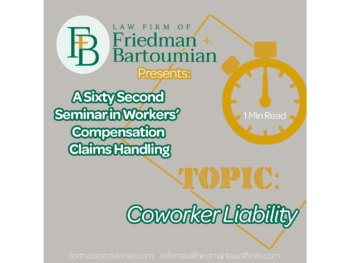
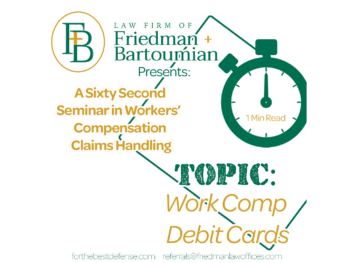
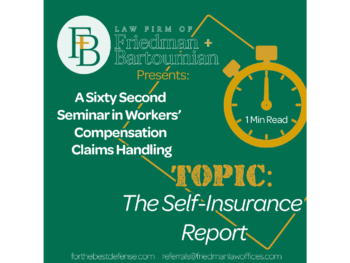
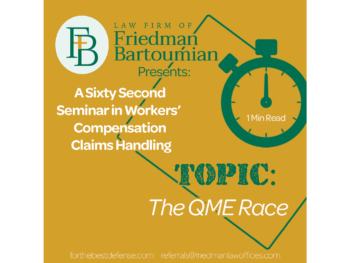
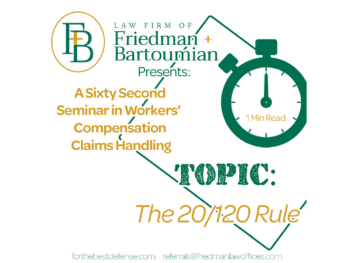

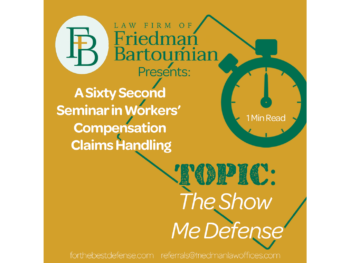
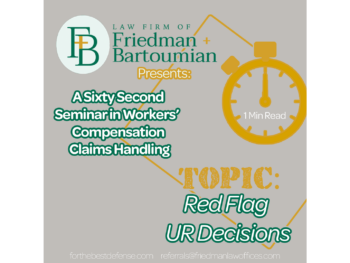
 The Wimpy Syndrome: A 60-Second Seminar in Workers’ Compensation Claims Handling
The Wimpy Syndrome: A 60-Second Seminar in Workers’ Compensation Claims Handling
Leave a Reply